UK Military Tells Starmer to Go Jump - Fascist Fools Who Want War - Send Your Kids - Another Tech Crash - 23 and Me - Hungary's Sacred Resistance - The Origins and Paradox of the European Union
WEEKLY -- On Sunday -- All previous Editorials are available on the Substack Archive Further long term archives are available at LinkedIn and Wordpress https://boomfinanceandeconomics.wordpress.com
LET THE WAR PIGS GO TO WAR - ALL BY THEMSELVES
UK MILITARY TELLS STARMER TO GO JUMP –
THIS IS HOW TO DEAL WITH FASCIST FOOLS WHO WANT WAR
Oh, what a Lovely War (!). It lasted only a week. In last Sunday’s editorial, BOOM outlined the reasons why the European “Coalition of the Willing” will fail --
1. Lack of Funding
2. Capital Flight from Europe
3. Non Compliance from Italy, Hungary, Slovakia and Spain
4. Opposition from the USA – their “protector”
5. Lack of Support from the Public
5. Opposition from the Christian Alliance of Nations (which includes Russia and USA)
6. The Risk of economic, social and political suicide for the EU
Because the “Coalition of the Willing” clearly had no chance of success, they tried a few name changes. “Reassurance force” was tried. Then Latvia suggested “Coalition of Strength”. Pathetic.
During the week, in a surprise development (to everyone except BOOM), the war mongering Foolish Fascists of the UK and Western Europe were all soundly defeated by another force -- the UK Military.
The Telegraph newspaper reported that UK military officials had dismissed Prime Minister Keir Starmer’s proposal for deploying troops to Ukraine as part of a “peacekeeping force”. The newspaper reported that Starmer had “got ahead of himself.”
“There is no defined military end-state or military-strategic planning assumptions. It’s all political theater,” one senior army official told the news outlet. “Starmer got ahead of himself with talk of boots on the ground before he knew what he was talking about.”
“It’s politics. There’s no military sense in it,” another defence source was reported as saying, noting that neither Russia nor the US support the coalition. He also pointed to a lack of clarity on mission goals.
“What is a 10,000-international force based in the west of the country over 400km from the front line meant to do? It cannot even protect itself,” he argued. “What is the mission? What is its legitimacy? What are the rules of engagement? How is it commanded, supplied and housed? How long is it there for and why? No one knows.”
Then the Croatian President Zoran Milanovic said on Thursday that his country “will not be involved in Ukraine in any form.” Zagreb will not join the peacekeeping force because “the necessary conditions are simply not met – there is no peace agreement, nor the consent of the other side, which in this case is Russia,” he explained.
LET THE WAR PIGS GO TO WAR
As BOOM said in last week’s editorial -- “If these “strong woke leaders” wish for war, they can immediately fly with their adult children (if they have any) to Ukraine and go straight to the Eastern Front to sacrifice themselves on the Meat Grinder altar of “European democracy” and Zelenskyism. Nothing is stopping them from taking this action.”
This brilliant 1 minute video shows them in the trenches – all readers should watch it.
SEND YOUR KIDS -- https://x.com/FarAwayPeopleUK/status/1902803274711044149#m
SEND YOUR KIDS -- https://x.com/FarAwayPeopleUK/status/1902803274711044149#m
SEND YOUR KIDS -- https://x.com/FarAwayPeopleUK/status/1902803274711044149#m
23 AND ME – ANOTHER TECH CRASH -- FRAUD IS THE NORM — FROM $ 6 BILLION VALUATION TO ZERO
Fraud in American technology start-ups is the Norm. Pretending to create wealth is now the fastest way to become wealthy in the USA. Profits are superfluous, not necessary. The only requirement is Chutzpah — the ability to offer dreams of untold Billions with little substance in the business plan being offered. It’s the only game in town. It’s called Stealing from Your Investors in impolite circles. We have yet to see who the biggest Fraudster is because that story is still unfolding.
Famous Frauds litter the landscape and the gullible never learn — Enron (Ken Lay) , Bernie Madoff, Theranos (Elizabeth Holmes), Worldcom (Bernie Ebbers), Jeffrey Epstein, FTX (Sam Bankman-Fried), the entire alternative energy sector, electric cars and trucks and, of course, many biotechnology Wunderkinds.
Last week, yet another American high tech disaster crashed. 23andMe, the genetic testing company direct to the public filed for Chapter 11 bankruptcy.
Apparently, it holds genetic testing data for over 15 million customers. BOOM cannot imagine why anybody would hand over their genetic code to any commercial operator with a poor business model and possibly no ethical or moral constraints. But that is what millions of people did to satisfy their curiosity regarding their genetic provenance. And they did not think that their personal data could be on-sold or, worst, stolen by criminal enterprises.
FIVE YEAR CHART FOR 23ANDME SHARES
23andMe and its databases of personal genetic information are reportedly located in California. So, regardless of where their customers live, privacy is then governed by California law and some weak US federal laws. So, what happens to your DNA data when the company collapses?
A similar start-up genetic testing company, operating in Iceland, deCODE genetics is worth considering in this context. It was established in 1996 to map genetic data in Iceland but is now owned by Amgen, an American multinational drug company. Here is an excerpt from a paper published in the British Medical Journal way back in 1999 --
Quote: “On 17 December 1998, as a result of legislation instigated by deCODE genetics, a Delaware biotechnology company working in Reykjavik, the Icelandic parliament adopted a law making it legal for a private company to construct an electronic database of the country's health records.1
deCODE received an exclusive licence to build a database of Iceland's medical records (including diagnoses and test results, treatments and side effects) and will be able to combine and analyse these with genetic and genealogical data. The act also grants deCODE exclusive rights to commercial exploitation of the database for 12 years. Accordingly, deCODE has entered into a (non-exclusive) arrangement with Hoffmann-La Roche which gives the latter company access to the database for the purpose of researching the genetic origins of 12 common diseases.” Source: https://www.bmj.com/content/319/7207/441
So deCODE’s genetic data (and clinical data) was non-exclusively licensed to a Swiss Company for 12 years. And, after hitting serious financial turbulence, deCODE was eventually taken over by Amgen, a company resident in the US.
Go figure where all the data is and who has access to it?
In a world where ethics, truth, justice and morality exist, your medical records, including any personal genetic code, should be owned and held CONFIDENTIALLY by your personal medical practitioner. That’s what used to happen.
However, when greed, avarice, ambition, magical thinking and dreams of Utopia take hold of a society, this “mine of commercially valuable” data becomes fair game for any corporation or, indeed, any criminal gang. THAT is what we are dealing with here – a Gold Rush mentality. Let’s all be Billionaires (!!!).
In 2023, some criminals decided to steal data from 23andMe in a massive data hack. This exposed the security vulnerabilities of the company. The hackers gained access to the personal data of 1.5 million users and another 5.5 million who opted in to 23andMe’s DNA Relatives feature.
Wikepedia sums up the fiasco -- “The affected customers were reported as primarily Ashkenazi Jews but also including hundreds of thousands of ethnically Chinese users. The hacker(s) stole information customers had chosen to share with their DNA matches, which could include name, profile photo, birth year, location, family surnames, grandparents' birthplaces, ethnicity estimates, mitochondrial DNA haplogroup, Y-chromosome DNA haplogroup, link to external family tree, and any text content a customer had optionally included in their "About" section. On October 6, 2023, the company confirmed that the hacker(s) had illicitly accessed data on approximately 6.9 million users.”
So anyone who had submitted a DNA sample and provided family connections inadvertently exposed everyone in their family line.
At the 2022 Aspen Security Forum, Congressman Jason Crow warned: “Weapons are being built to hit specific people… grab their DNA, their health profile, and make a germ to kill them or bench them.”
He called out 23andMe: “You spit in a cup, and a company owns your DNA - sold off with barely any rules.”
HUNGARY’S SACRED TRADITION OF RESISTANCE
On 15th March, the anniversary of the Hungarian Revolution of 1848, Victor Orban, Prime Minister of Hungary for the last 15 years, made a stirring speech to the assembled public. The theme of the speech was National Pride and Destiny, standing in defiance of all empires – the latest being the “Empire of George Soros”, the “Empire of Brussels” and the “liberal American Empire”. The speech was followed by a fulsome singing of the National Anthem. Here are some excerpts.
“The essence of Hungarian freedom is eternal and timeless. …. We must remind ourselves of our common national duty…. The homeland requires our patronage and service. … We are the future …. The future is not that of the empire but of the patriots of independent nations. … We Hungarians kicked the first brick out of the Berlin Wall which brought freedom to the whole of Europe. The Hungarian man is in his element when he fights for his freedom. … The empire wants to replace its European natives with foreign civilisations, with invading masses. … The empire wants to remove the Christian order and culture. And, instead of peace, it wants to put us in the service of the gods of war. The Imperial machine has invaded the entire Western world. But we have stopped it at the borders of Hungary. We did not surrender. We did not allow them to occupy the country, nor the parliament, nor the government. We have not been happy with bribes, with money, with threats, with mercenaries, with Brussels. We do not retreat from the Soros Empire (we fight). We do not kneel to Brussels. We do not surrender to the liberal American Empire.”
He went on to state that Hungary will not exit from the European Union. It will seek to change it from within.
This man knows what he stands for – Family, Freedom and Hungarian Nationhood.
He also knows what he stands against – empires that seek to usurp Hungary, to corrupt it, to control it.
LET’S EXAMINE THE EUROPEAN UNION ECONOMY – VISUAL CAPITALIST
The European Union's total GDP is $19.4 trillion, and just three countries—Germany, France, and Italy—make up 52.9% of that.
The Rank:
1. Germany: $4.7 trillion
2. France: $3.2 trillion
3. Italy: $2.4 trillion
4. Spain: $1.7 trillion
5. Netherlands: $1.2 trillion
6. Poland: $863 billion
🔹 Germany leads the way with a $4.7T economy (24.3% of the EU's GDP), larger than the combined GDP of the 20 smallest EU economies.
🔹 France follows with $3.2T (16.4%), and Italy with $2.4T (12.2%).
🔹 Spain and the Netherlands round out the top five, contributing $1.7T and $1.2T, respectively.
Some key takeaways:
✅ 68.1% of the EU’s GDP comes from just the top 5 economies—a strong concentration of economic power.
✅ Malta experienced the highest GDP growth (5%) in 2024 but still accounts for just 0.1% of the EU’s economy.
✅ Poland, Sweden, and Ireland remain strong players in the top 10, reinforcing their economic resilience.
This analysis is provided by Visual Capitalist. It highlights the importance of Italy and Spain (when combined). They then become the second largest economy and are a powerful block to whatever Germany and France want to do. So the seeds of destruction of the EU are contained within its makeup.
CHRISTIAN ALLIANCE TO OPPOSE NORTHERN EUROPEAN UNION TOTALITARIAN WAR MONGERS
BOOM suggests strongly that the Southern Christian nations of Italy and Spain should form a strong alliance with Christian Hungary, Slovakia, Croatia and Slovenia to oppose the assumed power of Germany and France within the EU. The trend towards Fascism must be broken or the EU must be broken. Those are the only two options for the future.
Step One must be to publicly oppose all policies and actions put forward by Ursula Von Der Leyen, the head of the European Commission. Only then can there be some hope for the future for the people of the EU. The power of the Commission must be opposed and deconstructed.
The European Commission (EC) is the primary executive arm of the European Union (EU). It operates as a cabinet government, with a number of members of the Commission (informally known as "commissioners") corresponding to two thirds of the number of member states, unless the European Council, acting unanimously, decides to alter this number. The current number of commissioners is 27, including the president. It includes an administrative body of about 32,000 European civil servants. The commission is divided into departments known as Directorates-General (DGs) that can be likened to departments or ministries each headed by a director-general who is responsible to a commissioner.
ALL of these positions are not subject to elections. The People have no say. This is Authoritarianism WRIT LARGE, not democracy. The selected officials are all “subject to a vote of approval by the European Parliament”. However, this is clearly a Rubber Stamp arrangement. All of the appointments are made secretly in the back rooms of Brussels. The European Union is an Authoritarian institution by design and therefore is open to corporate corruption. In other words, it is designed to create Fascism in Europe with centralised control held by dark, hidden forces.
Those hidden corporate (and political) forces can conveniently act through just one supreme person, the Head of the European Commission, currently the unelected Ursula Von Der Leyen. Thus, if she remains compliant to those hidden forces, then she is effectively the non-representative Dictator of the European Union.
THE ORIGINS OF THE EUROPEAN UNION AND THE GREAT PARADOX
One of the Founders of the European Union was Robert Schuman, an idealistic, naive French/German (born in Luxembourg).
In May 1949, Schuman announced a coming “Supranational Union for Europe” that began as the European Coal and Steel Community and other such “Communities” within a framework of common law and democracy. The Plan was approved in 1950 by the American lawyer, John McCloy, who was the Military Governor High Commissioner of Germany at the time.
McCloy is an important figure in US and European history and is arguably one of the keys to understanding America’s Post World War Two evolution from an ally of the USSR to rabid anti-communism (Anti USSR), along with his fellow lawyer, Allen Dulles. McCloy was a lawyer in Nazi Germany during the 1930’s and early 1940’s. He subsequently became the Head of the World Bank, a Rockefeller banker as Head of Chase Manhattan Bank, the Ford Foundation and, eventually, a committee member of the Warren Commission (the “investigation” into the assassination of President John F. Kennedy). He was an adviser to every US President from Franklin D. Roosevelt to Ronald Reagan. Allen Dulles lived in Berne in Switzerland during World War Two, as an agent of the OSS and then subsequently became head of the CIA and was also a committee member of the Warren Commission. Go figure. McCloy’s permission was required to form Schuman’s supranational union for Europe.
Back to Schuman, who made this speech in Strasbourg on 16th May, 1949. All readers interested in the problems of our modern world should examine it carefully. It could have naively (or cynically) been called “The End of War”. But, more importantly, it contains a great paradox.
We are carrying out a great experiment, the fulfilment of the same recurrent dream that for ten centuries has revisited the peoples of Europe: creating between them an organization putting an end to war and guaranteeing an eternal peace. The Roman church of the Middle Ages failed finally in its attempts that were inspired by humane and human preoccupations. Another idea, that of a world empire constituted under the auspices of German emperors was less disinterested; it already relied on the unacceptable pretensions of a 'Führertum' (domination by dictatorship) whose 'charms' we have all experienced.
Audacious minds, such as Dante, Erasmus, Abbé de St-Pierre, Rousseau, Kant and Proudhon, had created in the abstract the framework for systems that were both ingenious and generous.
The title of one of these systems became the synonym of all that is impractical: Utopia, itself a work of genius, written by Thomas More, the Chancellor of Henry VIII, King of England.
The European spirit signifies being conscious of belonging to a cultural family and having a willingness to serve that community in the spirit of total mutuality, without any hidden motives of hegemony or the selfish exploitation of others. The 19th century saw feudal ideas being opposed and, with the rise of a national spirit, nationalities asserting themselves. Our century, that has witnessed the catastrophes resulting in the unending clash of nationalities and nationalisms, must attempt and succeed in reconciling nations in a supranational association. This would safeguard the diversities and aspirations of each nation while coordinating them in the same manner as the regions are coordinated within the unity of the nation.
— Robert Schuman, speaking in Strasbourg, 16 May 1949
The third paragraph contains the great paradox, possibly a hint of what was to come. Schuman describes Thomas More’s little book titled Utopia as a “work of genius” but then labels it as entirely impractical.
Then he espouses a “supranational association” to bind European nations in a “community” of “total mutuality”. To BOOM, that sounds very much like a Socialist Utopia – as described by Thomas More and by the so-called Father of Utopian Socialism who was a Frenchman, Charles Fourier. By the way, Fourier died in 1837 but his imaginative ideas led to the concepts of Socialist Communities, Communism, Feminism, Israel (via the formation of Mikveh Israel in 1870), National Socialism (Nazism) and, last but not least, Climate Change.
BOOM is convinced that the false Utopian ideas of Fourier and More combined with the equally false ideas of Thomas Malthus have infected humans on Earth and have led to almost all of the conflicts that exist in our modern world.
The quest for Utopia is a human social disease made worse by the concepts of “resource scarcity” due to “over-population” (as espoused by Malthus).
Think clearly here.
If you combine the deep (false) urge to create a Utopia on Earth with the (false) idea that there are too many of us, then you can only reach one (false) conclusion – we must DE-populate. Thus, war becomes justifiable in such a mad mind. And nuclear war becomes perhaps a paramount possibility, a quest or even a duty to be achieved. This is MADNESS write large. But this is the world as we know it today with most so-called “leaders” being captured by the ideas of Malthus, More and Fourier.
If you hear them saying “we must do whatever it takes”, be wary — extra wary.
Victor Orban knows the way back to sanity. He opposes these ideas, especially the ideas of empire – any empire. He refuses the polemics of Fear. He stands as a proud Nationalist, a man who seeks to understand and stand for reality rather than the false dreams of Utopia. For Peace rather than war.
THE FINAL SAY
Black Sabbath, the rock band, summed it all up in their famous song War Pigs from 1970 — a Quarter of a Century of endless war ago. Here is a selection of the lyrics.
Politicians hide themselves away
They only started the war
Why should they go out to fight?
They leave that role to the poor
Time will tell on their power minds
Making war just for fun
Treating people just like pawns in chess
Wait 'till their judgment day comes, yeah!
Now in darkness, world stops turning
Ashes where the bodies burning
No more war pigs have the power
Hand of God has struck the hour
Despite its title, this song is strongly against the horrors of war. The bass player, Geezer Butler, recalled in an interview to Mojo magazine in 2017 —
“War is the real Satanism. Politicians are the real Satanists. That's what I was trying to say."
==============================================================
In economics (and finance), things work until they don’t. Do your own research. Make your own conclusions. BOOM does not offer investment advice.
Disclaimer: All content is presented for educational and/or entertainment purposes only. Under no circumstances should it be mistaken for professional investment advice, nor is it at all intended to be taken as such. The commentary and other contents simply reflect the opinion of the authors alone on the current and future status of the markets and various economies. It is subject to error and change without notice. The presence of a link to a website does not indicate approval or endorsement of that web site or any services, products, or opinions that may be offered by them.
Neither the information nor any opinion expressed constitutes a solicitation to buy or sell any securities nor investments. Do NOT ever purchase any security or investment without doing your own and sufficient research. Neither BOOM Finance and Economics.com nor any of its principals or contributors are under any obligation to update or keep current the information contained herein. The principals and related parties may at times have positions in the securities or investments referred to and may make purchases or sales of these securities and investments while this site is live. The analysis contained is based on both technical and fundamental research.
Although the information contained is derived from sources which are believed to be reliable, they cannot be guaranteed.
Disclosure: We accept no advertising or compensation, and have no material connection to any products, brands, topics or companies mentioned anywhere on the site.
Fair Use Notice: This site contains copyrighted material the use of which has not always been specifically authorized by the copyright owner. We are making such material available in our efforts to advance understanding of issues of economic and social significance. We believe this constitutes a ‘fair use’ of any such copyrighted material as provided for in section 107 of the US Copyright Law. In accordance with Title 17 U.S.C. Section 107, the material on this site is distributed without profit. If you wish to use copyrighted material from this site for purposes of your own that go beyond ‘fair use’, you must obtain permission from the copyright owner.
Subscribe to BOOM Finance and Economics Substack
BOOM has developed a loyal readership which includes many of the world’s most senior economists, central bankers, fund managers and academics.




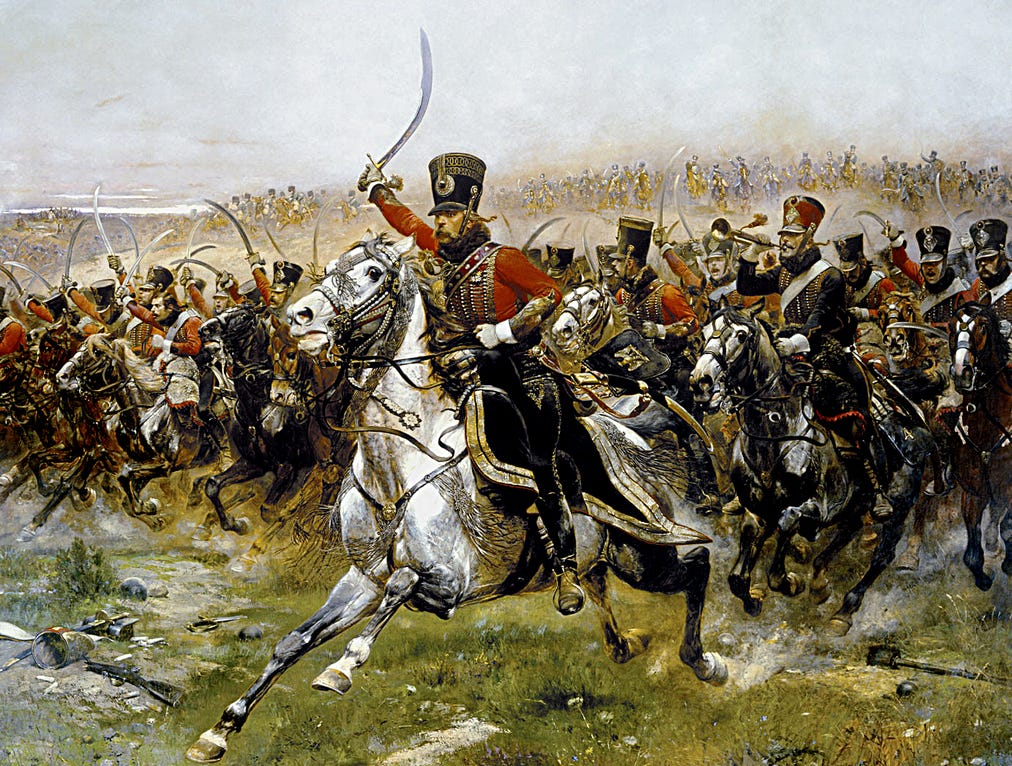



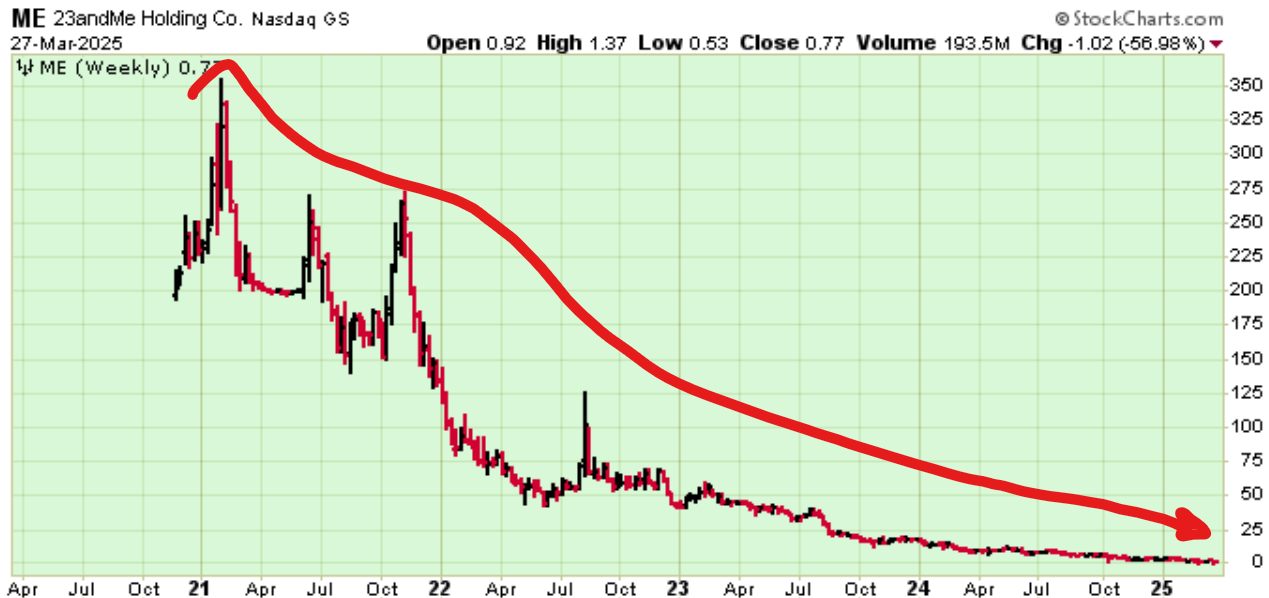
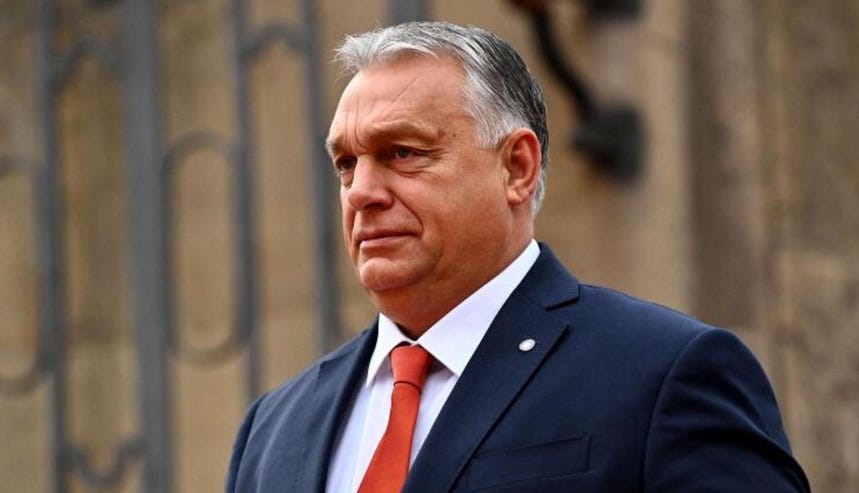
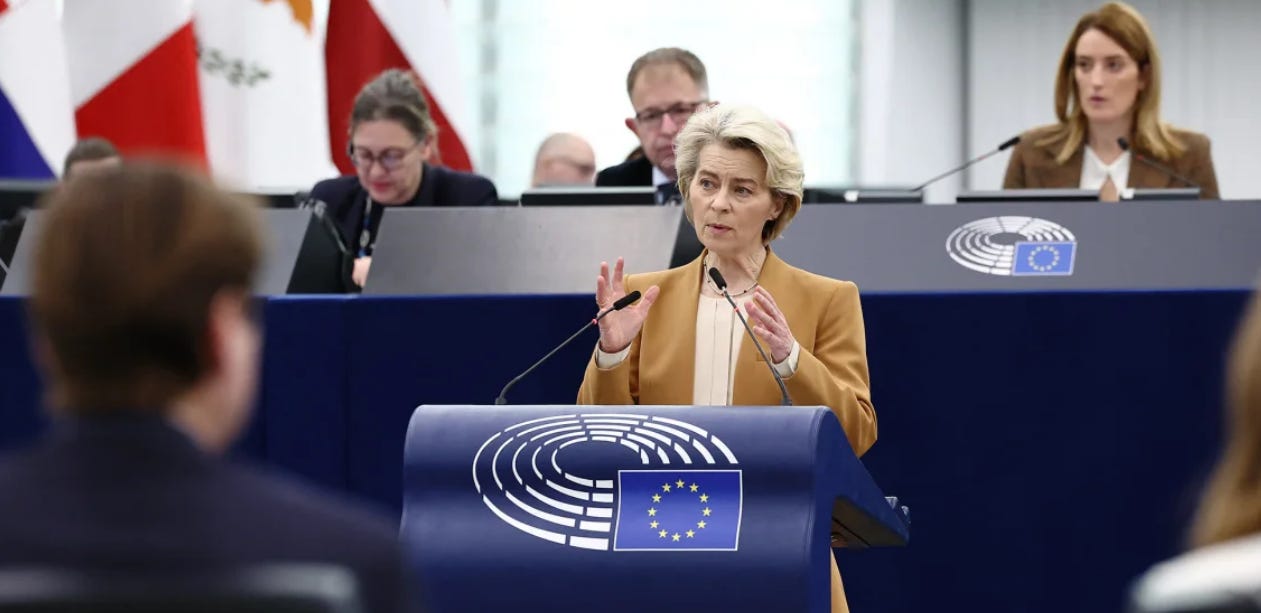


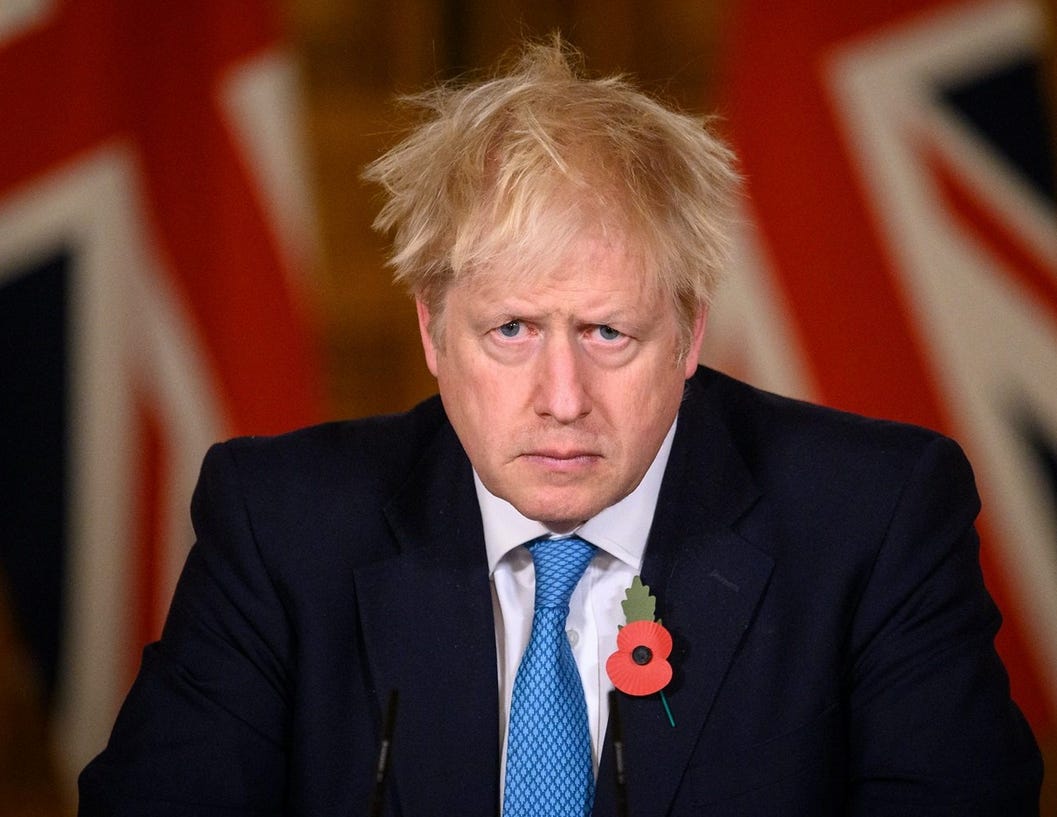
Interesting text, as always. What I find missing in your analysis, however, is the underlying reality of energy and other resources.
From where I'm standing, it looks like Europe, possessing very little in terms of energy, has embarked on a path of enslaving the rest of the world through control of the financial system and global organizations, using the US as a henchman that strongarms anybody who dares not comply. The various anybodies have had enough and have grown strong enough to tell the West to shove it, while the West has grown weaker, well pretty much utterly decadent, the advantages they had in the past, such as technological superiority, gone.
Europe has realized the deep shit it's in and is attempting to do something about it. The right thing to do, as BOOM has suggested would be to engage in global diplomacy as an impartial player, to promote education to be the center of knowledge, to be the world's culture center, stuff like that. All long-term efforts, plus the FUCKING IDIOTS in charge, the ones featured in the above clip, don't have the brains to formulate visions of this nature.
So, war it is. Another crusade to conquer Russia and steal its riches. Beats me why they think they can pull it off this time. Did I say they're FUCKING IDIOTS? Oh, I did.
I couldn’t agree more about the unelected, unaccountable EU Commission and Empress Ursula.
You write about Schuman but, arguably, leave out the most important person, Jean Monnet (1888-1979). He can truly be called the principal Founding Father of the European Union (EU). Along with the other three “Founding Fathers”, Arthur Salter, Altiero Spinelli and Paul-Henri Spaak he was a man of high influence but unlike the Founding Fathers of the USA, he preferred to work in the background influencing and manipulating.
After WW1, at the age of 31, Monnet was appointed the League of Nations Deputy Secretary General.
The League was made up of the four divisions, a Secretariat, Council, Assembly and a Court of International Justice that Europeans will recognise today, in the European Union. Monnet expected the League to create World Order, “by its moral force, by appealing to public opinion and thanks to customs that would ultimately prevail.” It should also be noted that the Secretariat “was not to consist of national delegates but of International servants whose first loyalty was to the League.” an idea that he took forward into the European Commission. Monnet was frustrated by the power of national vetos: “I was impressed with the power of a nation that can say no to an international body that has no supranational power. Goodwill between men and nations is not enough.”
From Salters 1931 paper:
“the commercial and tariff policy of European States is so central and crucial a part of their general policy, the receipts from Customs are so central and substantial a part of their revenues, that a common political authority, deciding for all Europe what tariffs should be imposed and how they should be distributed, would be for every country almost as important as, or even more important than, the national Governments, and would in effect reduce the latter to the status of municipal authorities.”
He proposed that the United States of Europe had to be a political reality with a Secretariat, Council of Ministers, parliamentary assembly and a Court of Justice, based on the structure of the League of Nations, but that the central source of this authority had to be reserved for The Secretariat, the permanent body of civil servants loyal to the new organisation not to member countries. He understood that the Council of Ministers would always have national loyalties, so its power had to be curbed.
Churchill's war cabinet agreed on a draft “Proclamation of an Anglo-French Union” that was produced by Monnet, Salter and Churchill's advisor, Desmond Morton. Churchill, however, removed a reference to a common currency. An enthusiastic de-Gaulle telephoned it through to the the French government but the response was hostile, fearing British dominion in this union. Marshal Petain described it as a “fusion with a corpse” and sued for peace with Germany instead.
Monnet moved to work for the British supply council in Washington, where he discussed his plans for the European Coal and Steel Union with Paul-Henri Spaak, the pre-war Belgium Prime Minister. He used his time to influence Harold MacMillan, who was to become British Prime Minister in 1957, and top US government officials with his views for a future Europe. In 1943 he became a member of the provisional French Government, commenting:
“There will be no peace in Europe, if the states are reconstructed on the basis of national sovereignty with all that implies on terms of prestige politics and economic protectionism.”
I have quoted from a note I wrote in 2021. The whole note is reproduced at:
https://alfredtheo.wordpress.com/jean-monnet-the-european-union-founding-father/